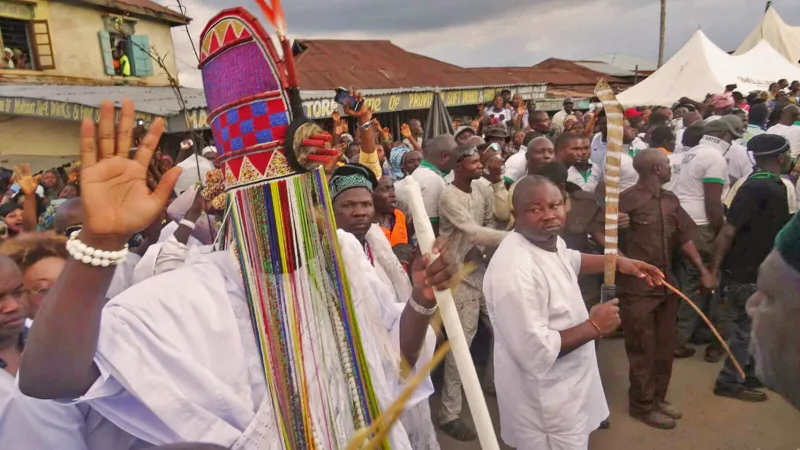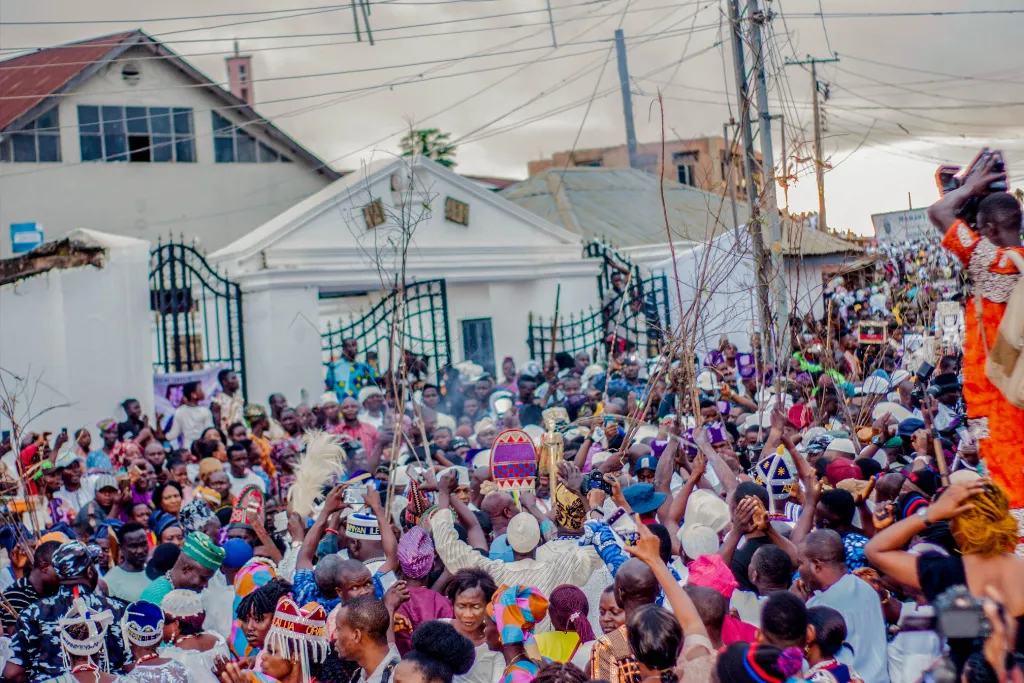Deep in the heart of Ile-Ife, Osun State—widely regarded as the spiritual cradle of the Yoruba people—one of the most ancient and revered cultural festivals in Nigeria is celebrated: the Olojo Festival. Held annually, usually in September or October, this powerful tradition draws thousands of spectators and participants from across the Yoruba nation and beyond.
The name Olojo translates to “The Day of the First Dawn”, representing a day specially blessed by Olodumare (the Supreme Creator). It is a day of thanksgiving—a celebration of human existence, divine creation, and the ancestral roots of the Yoruba race. The Ooni of Ife, Oba Adeyeye Enitan Ogunwusi, has described it as “a festival that celebrates the Black race all over the world.”
A Celebration of Ancestry and the God of Iron
Olojo Festival honors Ogun, the god of iron and warfare, who is believed to be the first son of Oduduwa, the legendary progenitor of the Yoruba people. As such, the event holds deep historical, religious, and symbolic significance for Yoruba people worldwide.
The festival is a key moment in the cultural calendar of Ile-Ife and one of the most symbolic traditions in Yoruba land. Although it is typically held in the early months of the traditional calendar (September/October), the 2019 edition was celebrated in February—highlighting its dynamic but enduring relevance.

Rituals and Royal Procession
One of the most anticipated moments of the festival is the emergence of the Ooni of Ife from a seven-day seclusion. During this period, the Ooni engages in spiritual reflection, communion with the ancestors, and fasting, making him ritually pure and spiritually fortified to intercede on behalf of his people.
Before his appearance, women from both his maternal and paternal lineages sweep the palace to symbolically remove evil and misfortune. Then, adorned with the sacred Are Crown—believed to be the original crown of Oduduwa—the Ooni steps out to lead a royal procession of traditional chiefs and priests.
The procession makes its way to Okemogun Shrine, where the Ooni performs several sacred rites. These include oath renewals, divinations led by the Araba (Chief Priest), and visits to historically significant sites across Ile-Ife. Traditional chiefs appear dressed in ceremonial attire, holding swords of office marked with chalk and camwood. Each chief’s dance and drumming style is unique, and only the Ooni dances to the revered Osirigi drum.
The Ifa Festival: A Celebration of Divination and Wisdom
Closely related in cultural significance to Olojo is the Ifa Festival, held annually on the first Saturday in June. Ifa—also known as Orunmila—is a central deity in Yoruba spirituality, revered as the oracle of wisdom and foresight.
This seven-day festival includes a series of intricate rituals:
-
Day 1: Ijawe Ifa Ooni (leaf-picking for the oracle) and Arisun Idana Afin (a culinary vigil at the palace).
-
Day 2: Bibo Ifa Ooni (sacrifice for the Ooni’s oracle).
-
Days 3–4: Secret rites by the cult of Awo Oloju Merindinlogun (Sixteen-Faced Cult).
-
Day 5: Public lectures and panel discussions—such as “Women in Ifa”—followed by rituals performed by the high priest, Araba Agbaye.
-
Day 6–7: The climax includes Iwure (blessings and prayers), feeding of the Ifa, and divination for the coming year.
The festival showcases the depth of Yoruba cosmology, its reverence for balance and destiny, and its acknowledgment of women in spiritual leadership.
Unifying a People Through Culture and Spirituality
Olojo Festival remains one of the most symbolic and unifying cultural celebrations in Nigeria. It brings together people of all ages and backgrounds, fostering a deep sense of pride, identity, and continuity among the Yoruba people.
It is a reminder that Ile-Ife is not just a geographic location—it is the spiritual heartbeat of a civilization, the city of survivors, the land of ancestors, and the home of kings. Through festivals like Olojo and Ifa, the cultural and spiritual legacy of the Yoruba people continues to thrive, inspiring generations and drawing admiration from around the world.
